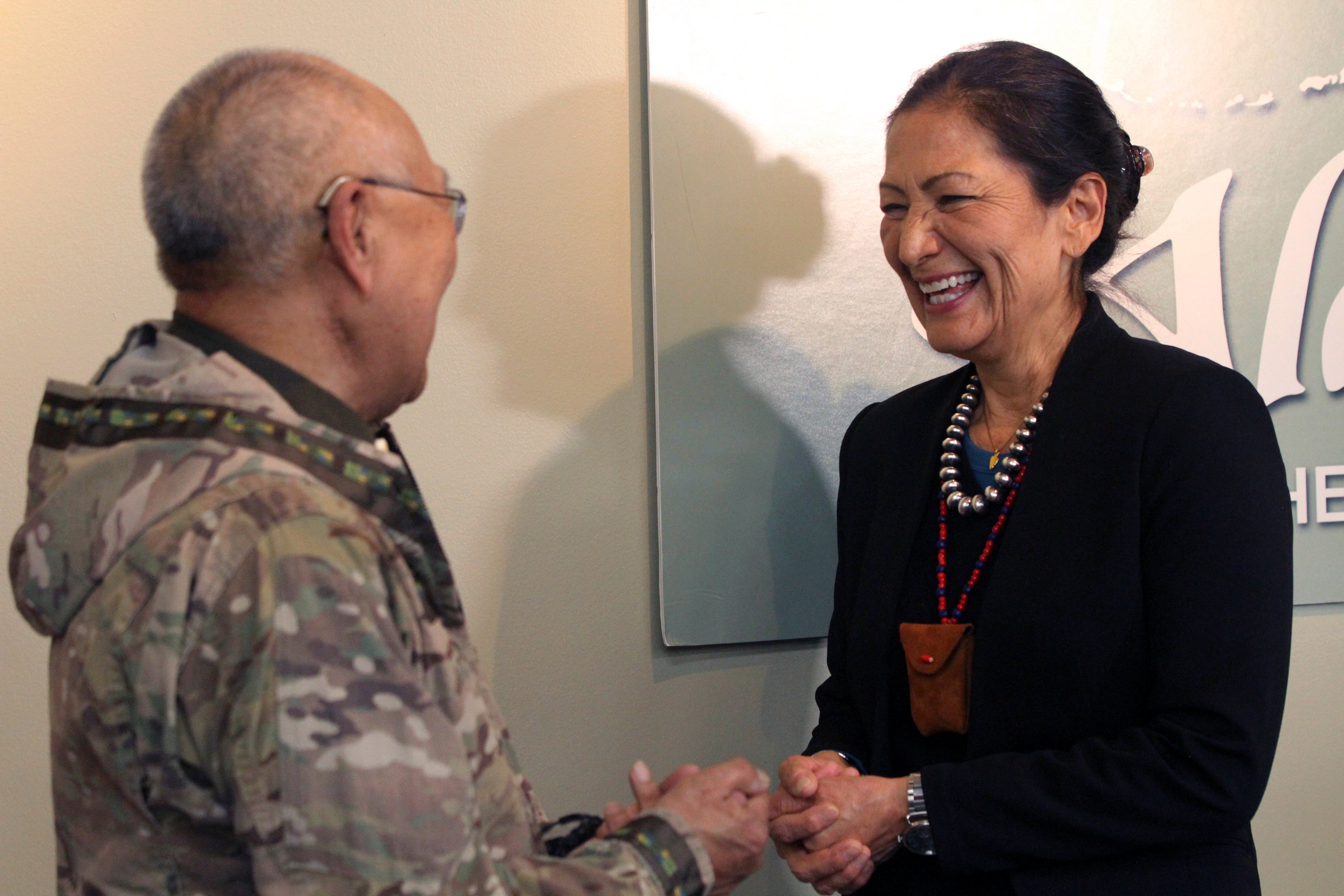Agency proposes more land options for Alaska Native veterans
The U.S. Bureau of Land Management has proposed an expansion of lands available for selection by Alaska Native Vietnam War-era veterans who are entitled to allotments

Your support helps us to tell the story
From reproductive rights to climate change to Big Tech, The Independent is on the ground when the story is developing. Whether it's investigating the financials of Elon Musk's pro-Trump PAC or producing our latest documentary, 'The A Word', which shines a light on the American women fighting for reproductive rights, we know how important it is to parse out the facts from the messaging.
At such a critical moment in US history, we need reporters on the ground. Your donation allows us to keep sending journalists to speak to both sides of the story.
The Independent is trusted by Americans across the entire political spectrum. And unlike many other quality news outlets, we choose not to lock Americans out of our reporting and analysis with paywalls. We believe quality journalism should be available to everyone, paid for by those who can afford it.
Your support makes all the difference.The U.S. Bureau of Land Management has proposed an expansion of lands available for selection by Alaska Native Vietnam War-era veterans who are entitled to allotments.
Tom Heinlein, acting state director for the land agency in Alaska, on Thursday recommended opening about 27 million acres of land for allotment selections by eligible veterans. Currently, about 1.2 million acres are available. Concerns have been raised that some of the currently available lands are difficult to access or outside veterans' cultural homelands.
Heinlein said the next step is to provide detailed land descriptions to Interior Secretary Deb Haaland. It would be up to Haaland to sign and issue an opening order for land selections, he said.
The plan is to get her that information in the coming weeks, Heinlein said. He called the matter a “super high priority” for Haaland.
Haaland visited with veterans this week during her ongoing trip to Alaska, her first to the state as secretary. “We have a sacred obligation to America’s veterans," she said in a statement, adding that she "will not ignore land allotments owed to our Alaska Native Vietnam-era veterans.”
Under the 1906 Alaska Native Allotment Act, Alaska Natives were allowed to apply for up to 160 acres of land. Many Alaska Natives were unaware of this program, in large part due to communication hurdles, such as language barriers, according to the land management agency.
There were efforts to urge Alaska Natives to apply for lands if they hadn't already done so before a 1971 law took effect; that period overlapped with the Vietnam War. A 1998 federal law allowed veterans to apply for land, but the program was seen by some as restrictive.
A 2019 law lifted use and occupancy restrictions and made lands available until late 2025, the land agency has said.
There are roughly 2,000 eligible individuals but several hundred for whom the agency is looking for heirs or addresses, said Lesli Ellis-Wouters, an agency spokesperson in Alaska. Of those eligible, 162 have made selections and eight have had land conveyed to them, she said.
Nelson Angapak Sr., who appeared at a news conference with Haaland in Anchorage on Thursday, said Friday that he hadn't seen the documents or maps yet. But he said if the land base from which veterans may apply is expanded, he sees it as a “step in the right direction.”
U.S. Sen. Dan Sullivan, an Alaska Republican, has expressed concern with the pace of the process so far and with the federal government's approach.
Chad Padgett, a former state director for the Bureau of Land Management, is currently the state director for Sullivan's office. Padgett, in a statement Friday, said that by “changing the process and attempting to open the lands just for veteran allotments (and excluding the state of Alaska and Native Corporations who also are allotted land under federal law), the Department of the Interior is promising land that they legally cannot.”
The plan would likely be challenged in court, he said.
The land management agency falls under the Interior Department.